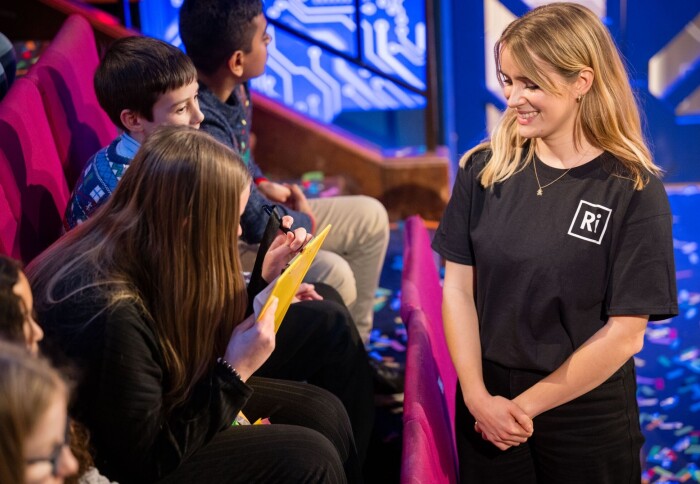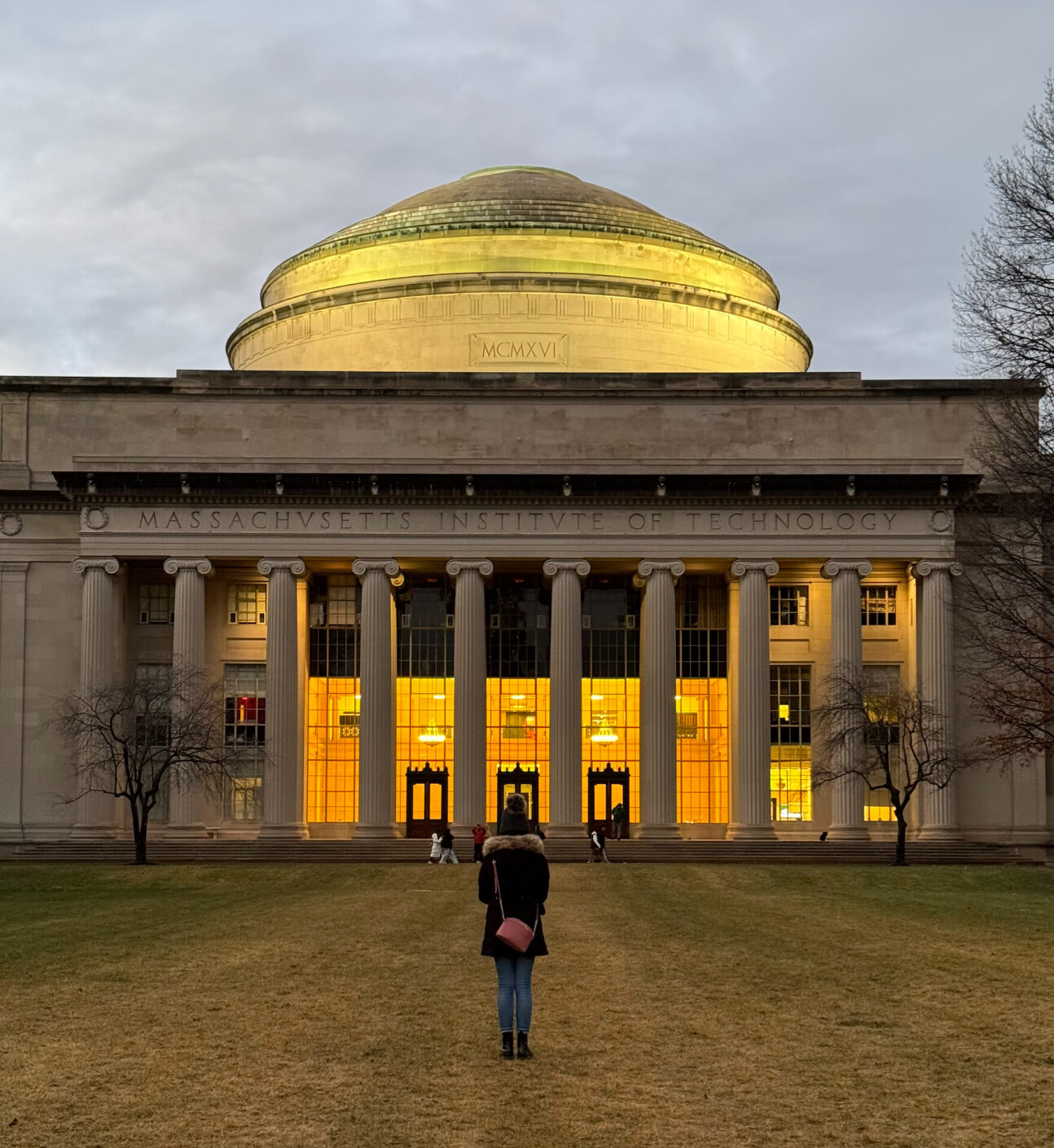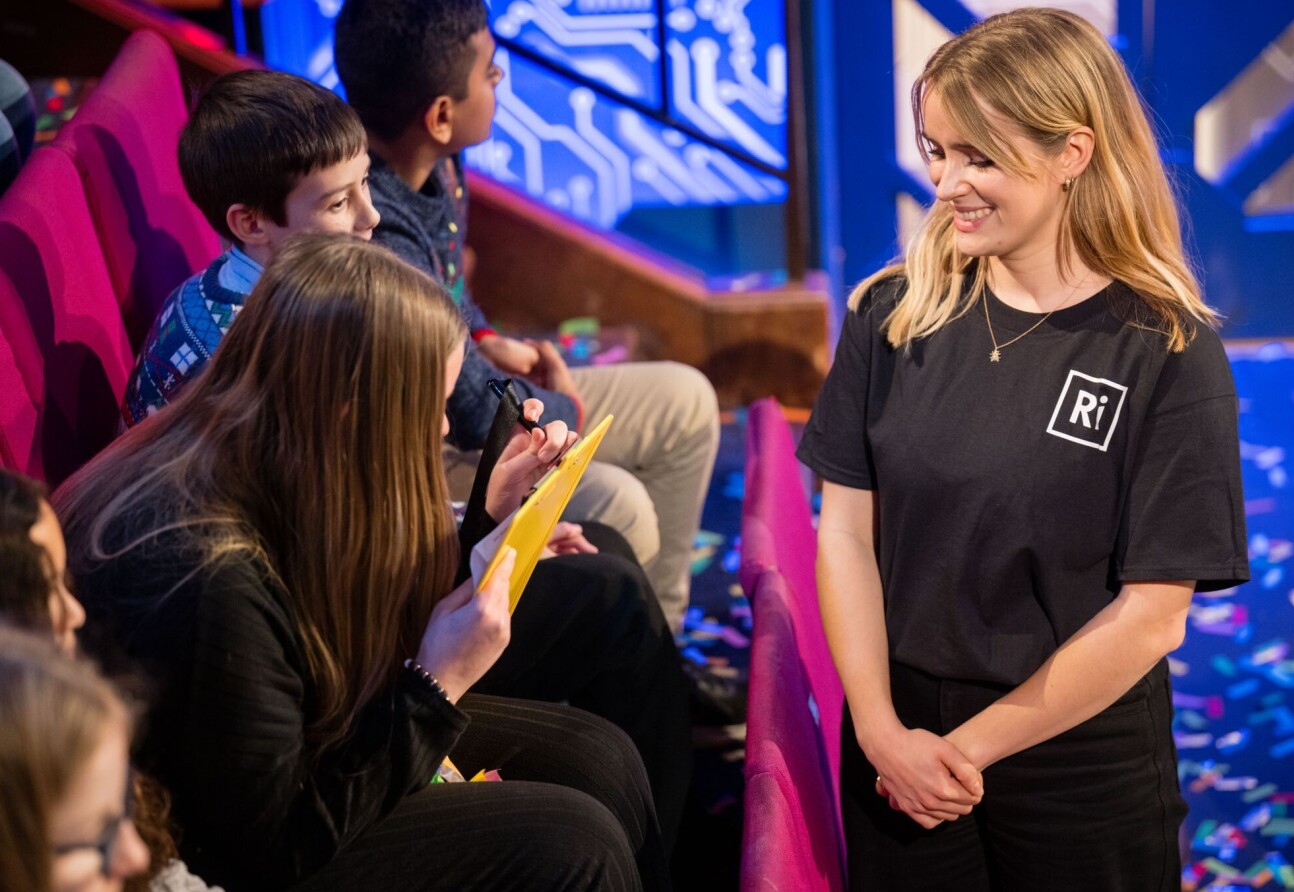Student Experience - EVOLVE

Hannah Cooke at the RI
Student Experience is a termly article written by our student-led Social Media Committee, looking at an aspect of the ICB CDT from their perspective.
We would like to shine a spotlight on the EVOLVE programme, an incredible opportunity designed to complement ICB CDT PhD studies by equipping students with practical skills applicable to various career paths. We'll be diving deeper into EVOLVE with interviews from past participants who'll share how the program is shaping their career path.
What is EVOLVE?
EVOLVE is a one-of-a-kind training program specifically for ICB CDT students. It allows you to tailor your experience to your passions, whether you're interested in:
Policy Making
Patent Law
Media and Outreach
Industry R&D
Academic International collaboration
Venture Capital
Publishing
Entrepreneurship and Innovation
Science Communication
Unsure if EVOLVE is right for you?
Choosing the right career path can be challenging. To gain further insight into the programme's impact, we encourage you to read the interviews below with EVOLVE alumni who share their valuable experiences.
Sabrina Nuccio:
 Sabrina received her BSc in Biotechnology and MSci in Industrial Biotechnology from the University of Palermo. She undertook a project in a protein engineering lab in Basel under the supervision of Prof. Dr. Georg Lipps during her MSci. She then joined the NCCR RNA & Disease Predoc program in Switzerland where she contributed to two different projects at the University of Bern and at ETH Zürich, the later project was supervised by Prof. Dr. Jacob Corn, which gave her the chance to learn more about CRISPR genome editing. Sabrina is now doing her PhD with Dr Di Antonio where her project aims to develop novel chemical biology tools for selective interference with epigenetic markers at specific genomic location using CRISPR-Cas9 technologies and novel photo-reactive ligands. Sabrina’s main interest is scientific divulgation, this is why she participates in an online blog with the aim to make accessible to everyone the key elements of biotechnology. We have asked Sabrina to share with us her recent experiences of EVOLVE, where she was a visiting student at the MIT.
Sabrina received her BSc in Biotechnology and MSci in Industrial Biotechnology from the University of Palermo. She undertook a project in a protein engineering lab in Basel under the supervision of Prof. Dr. Georg Lipps during her MSci. She then joined the NCCR RNA & Disease Predoc program in Switzerland where she contributed to two different projects at the University of Bern and at ETH Zürich, the later project was supervised by Prof. Dr. Jacob Corn, which gave her the chance to learn more about CRISPR genome editing. Sabrina is now doing her PhD with Dr Di Antonio where her project aims to develop novel chemical biology tools for selective interference with epigenetic markers at specific genomic location using CRISPR-Cas9 technologies and novel photo-reactive ligands. Sabrina’s main interest is scientific divulgation, this is why she participates in an online blog with the aim to make accessible to everyone the key elements of biotechnology. We have asked Sabrina to share with us her recent experiences of EVOLVE, where she was a visiting student at the MIT.
Can you share with us your background and what led you to pursue a PhD? I earned my BSc and MSc in Biotechnology at the University of Palermo, Italy, and carried out my master’s thesis in a protein engineering lab in Basel, Switzerland. After graduating, I returned to Switzerland to join a predoc program, first at the University of Bern and then at ETH Zurich. This gave me the chance to meet and work with world-leading scientists in the fields of cellular and genome engineering, who inspired my next steps in academia, leading to the decision to pursue a PhD.
Could you provide an overview of your PhD project and its potential real-world applications? My PhD project centres on developing a light-dependent tool for the temporal and spatial control of epigenetic modifications. This tool has the potential to uncover key epigenetic changes that contribute to the development of chemotherapy resistance, specifically within the context of breast cancer.
How do you envision your research contributing to addressing real-world challenges or advancing knowledge in your field? Despite the array of available tools, we still do not understand what triggers the development of breast cancer drug resistance over time. I believe my research could enhance our understanding and provide novel insights into the types of chemical modifications occurring on the top of our genome (epigenome) that we can target to prevent resistance from happening.
What specific aspects of your research area motivated you to apply for the Evolve program? The common thread was my biotech enthusiasm. In the first place, it drove me to apply for my actual PhD project at Imperial and then, to MIT. As silly as it may sound, they represent the vertex of “cool science” to me. Driven by my passion and a desire to immerse myself in new scientific environments, I was motivated to apply for the Evolve program, which enabled me to head to MIT as a visiting PhD student.
In what ways has the Evolve program enhanced your PhD experience? The Evolve program was fundamental in shaping my development as a scientist, offering me a unique opportunity to embrace a new approach to teamwork. I have indeed learnt that great scientific achievements are always the result of a team effort.
Can you highlight any unique opportunities or experiences that the Evolve program provided? It allowed me to join one of the world’s leading labs in cellular engineering, while also broadening my scientific knowledge in the field and expanding my professional network.
What skills or knowledge gained through the Evolve program do you believe will be most beneficial for your future career? This experience provided me with a fresh perspective on approaching both success and failure. I learned that great achievements are often built on a series of failures. When analysed carefully, these apparent setbacks can lead you toward solving complex problems and ultimately achieving your goals.
What advice would you give to prospective students considering applying for the Evolve program? Go for it! It is a unique opportunity during your PhD. Do not be afraid, you will figure it out!
Hannah Cook
Hannah is an ICB CDT student in her final year of study, her PhD project interest lies in developing next-generation lipid systems for vaccine delivery supervised by Professor Oscar Ces and Dr Yuval Elani. Outside of her academic work, she is also an active science communicator who has been attending leading large-scale festivals and local community outreach projects and science communication in the mass media. Hannah has worked at the Royal Institution for a 3 months internship for the Christmas lectures. We have asked Hannah to tell us a bit about herself and her time with the ICB CDT.
 Please tell us a bit about yourself and what motivated you to pursue a PhD. My name is Hannah and I’m a final year PhD student in the ICB CDT at Imperial. I became motivated to pursue a PhD following my master’s degree in chemistry at the University of York. I found the process of researching and then communicating your results to advance the body of knowledge in your field really exciting, and so felt a PhD would be a good step to continue doing this.
Please tell us a bit about yourself and what motivated you to pursue a PhD. My name is Hannah and I’m a final year PhD student in the ICB CDT at Imperial. I became motivated to pursue a PhD following my master’s degree in chemistry at the University of York. I found the process of researching and then communicating your results to advance the body of knowledge in your field really exciting, and so felt a PhD would be a good step to continue doing this.
What are some of the most exciting findings or challenges you've encountered so far? One of the biggest challenges of my PhD so far was presenting at a GSK conference in the first year of the PhD to an audience full of fellow PhD students, directors, and researchers. As I was at an early stage in my PhD, it was a nerve-wracking experience. In the end, I found the opportunity really valuable, and it helped me determine the direction of my research for the rest of my PhD.
What are the potential real-world applications of your research? My research focuses on developing new vaccine delivery systems that aim to be more effective, targeted, and programmable than current systems. The impact of vaccines on our everyday lives was highlighted by the Covid-19 pandemic. Through my research, I hope to extend what we know in this area and hopefully bring new developments that can improve vaccine delivery and the outcomes for public health.
What are some of the most valuable aspects of the ICB CDT programme for you? For me, the ICB CDT’s EVOLVE scheme has been incredibly valuable. I was able to undertake a 3-month internship at the Royal Institution working on their 2023 Christmas Lectures. I learnt so much about effective science communication, production, and filming, and I believe the skills I learnt there will help me massively following my PhD.
What skills or knowledge gained through the program do you find most valuable for your future endeavours? The ICB CDT has massively helped me improve my soft skills, such as communication and problem solving, through programmes like the Advanced Hackspace workshops and BOOST scheme. I feel more confident giving presentations, tackling new and unknown problems, and so many more skills that will be invaluable moving forward in my career.
Article text (excluding photos or graphics) © Imperial College London.
Photos and graphics subject to third party copyright used with permission or © Imperial College London.
Reporter
Press Office
Communications and Public Affairs
- Email: press.office@imperial.ac.uk
